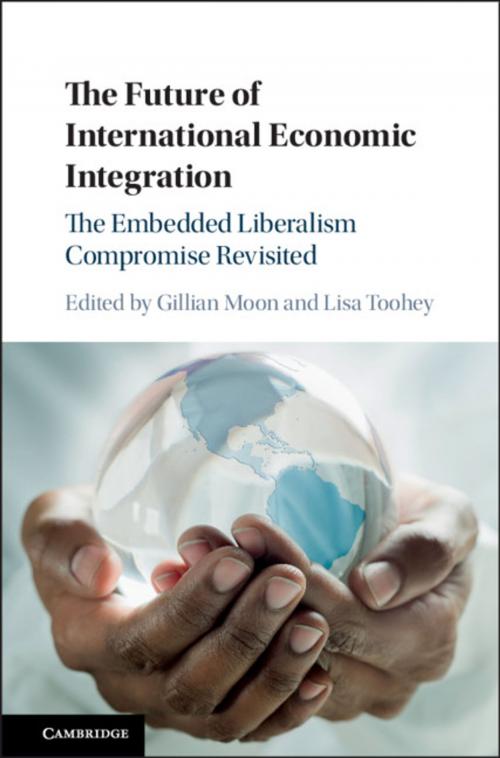The Future of International Economic Integration
The Embedded Liberalism Compromise Revisited
Nonfiction, Reference & Language, Law, Commercial, International| Author: | ISBN: | 9781108245302 | |
| Publisher: | Cambridge University Press | Publication: | September 30, 2018 |
| Imprint: | Cambridge University Press | Language: | English |
| Author: | |
| ISBN: | 9781108245302 |
| Publisher: | Cambridge University Press |
| Publication: | September 30, 2018 |
| Imprint: | Cambridge University Press |
| Language: | English |
As part of the 1947 General Agreement on Tariffs and Trade (GATT), a compromise on domestic socio-economic issues was struck and subsequently given the name 'embedded liberalism'. The Future of International Economic Integration explores the multiple dimensions of the embedded liberalism compromise, to understand its contemporary influence on both the scope and application of international trade law, and on the content and character of parallel domestic socio-economic policy space. Top international economic law scholars have contributed chapters that look at the four principal dimensions of the topic. It sets out the history and character of the embedded liberalism compromise, explores the relationship between the compromise and WTO law, explores areas of contemporary tension that invoke the principles of the compromise such as human rights, cultural diversity, and environmental protection, and investigates what future impact the compromise might have on new trade and investment agreements.
As part of the 1947 General Agreement on Tariffs and Trade (GATT), a compromise on domestic socio-economic issues was struck and subsequently given the name 'embedded liberalism'. The Future of International Economic Integration explores the multiple dimensions of the embedded liberalism compromise, to understand its contemporary influence on both the scope and application of international trade law, and on the content and character of parallel domestic socio-economic policy space. Top international economic law scholars have contributed chapters that look at the four principal dimensions of the topic. It sets out the history and character of the embedded liberalism compromise, explores the relationship between the compromise and WTO law, explores areas of contemporary tension that invoke the principles of the compromise such as human rights, cultural diversity, and environmental protection, and investigates what future impact the compromise might have on new trade and investment agreements.















